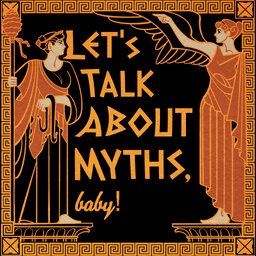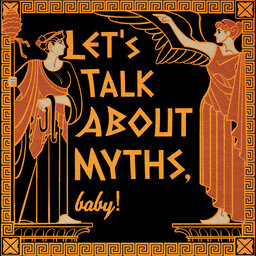Conversations: When Romans Write Greek Myth, Statius’ Thebaid w/ Meagan Cleveland
Liv speaks with author Meagan Cleveland about Statius' Thebaid... A very Roman (read: violent and dark) epic about the Oedipus dynasty and the Seven Against Thebes. Help keep LTAMB going by subscribing to Liv's Patreon for bonus content!
CW/TW: far too many Greek myths involve assault. Given it's fiction, and typically involves gods and/or monsters, I'm not as deferential as I would be were I referencing the real thing.
Attributions and licensing information for music used in the podcast can be found here: mythsbaby.com/sources-attributions.
 Let's Talk About Myths, Baby! Greek & Roman Mythology Retold
Let's Talk About Myths, Baby! Greek & Roman Mythology Retold


